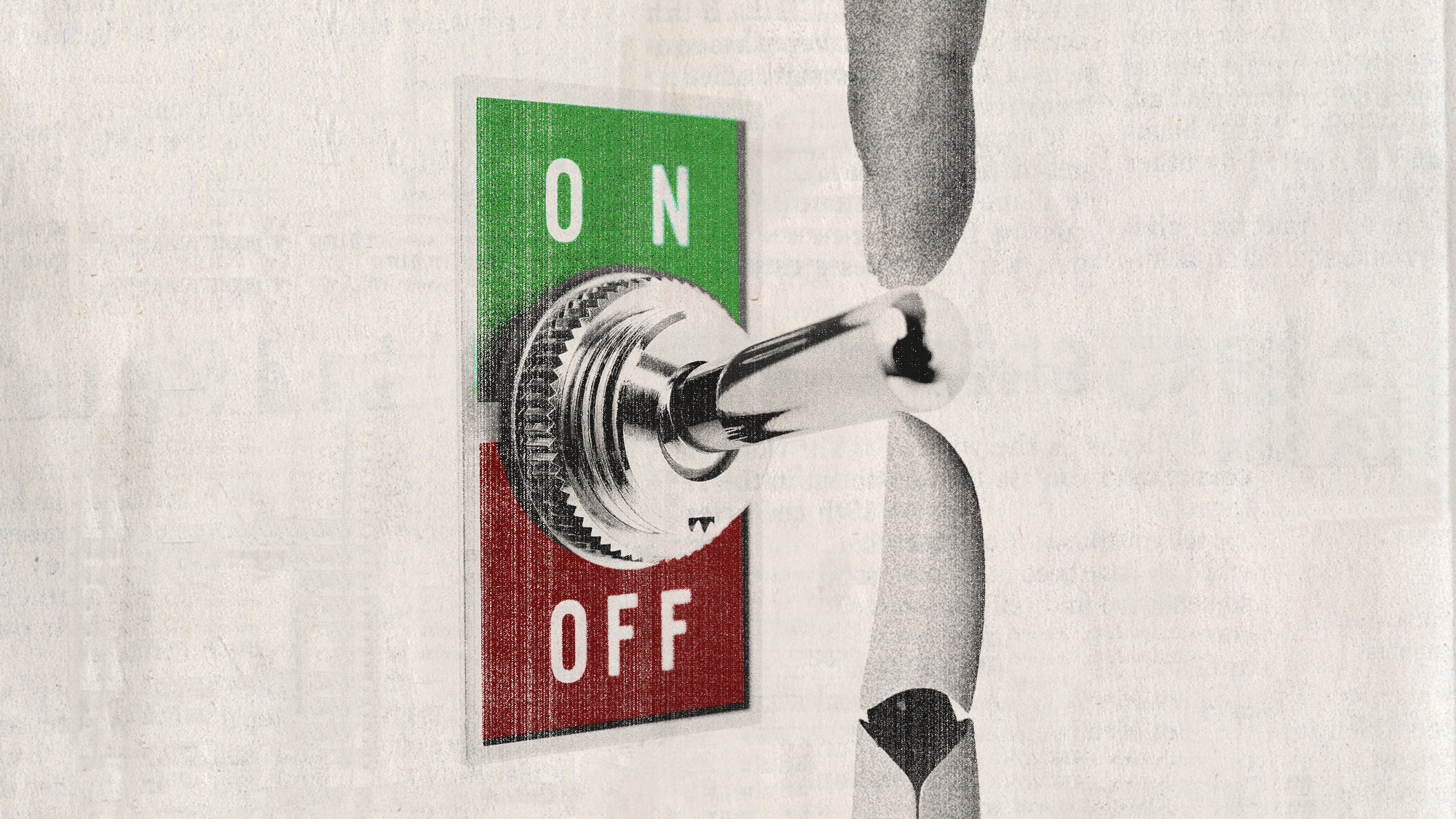The foolish race to declare victory in Korea
It's a lot easier to see the many ways this process could fail than the few in which this effort could succeed
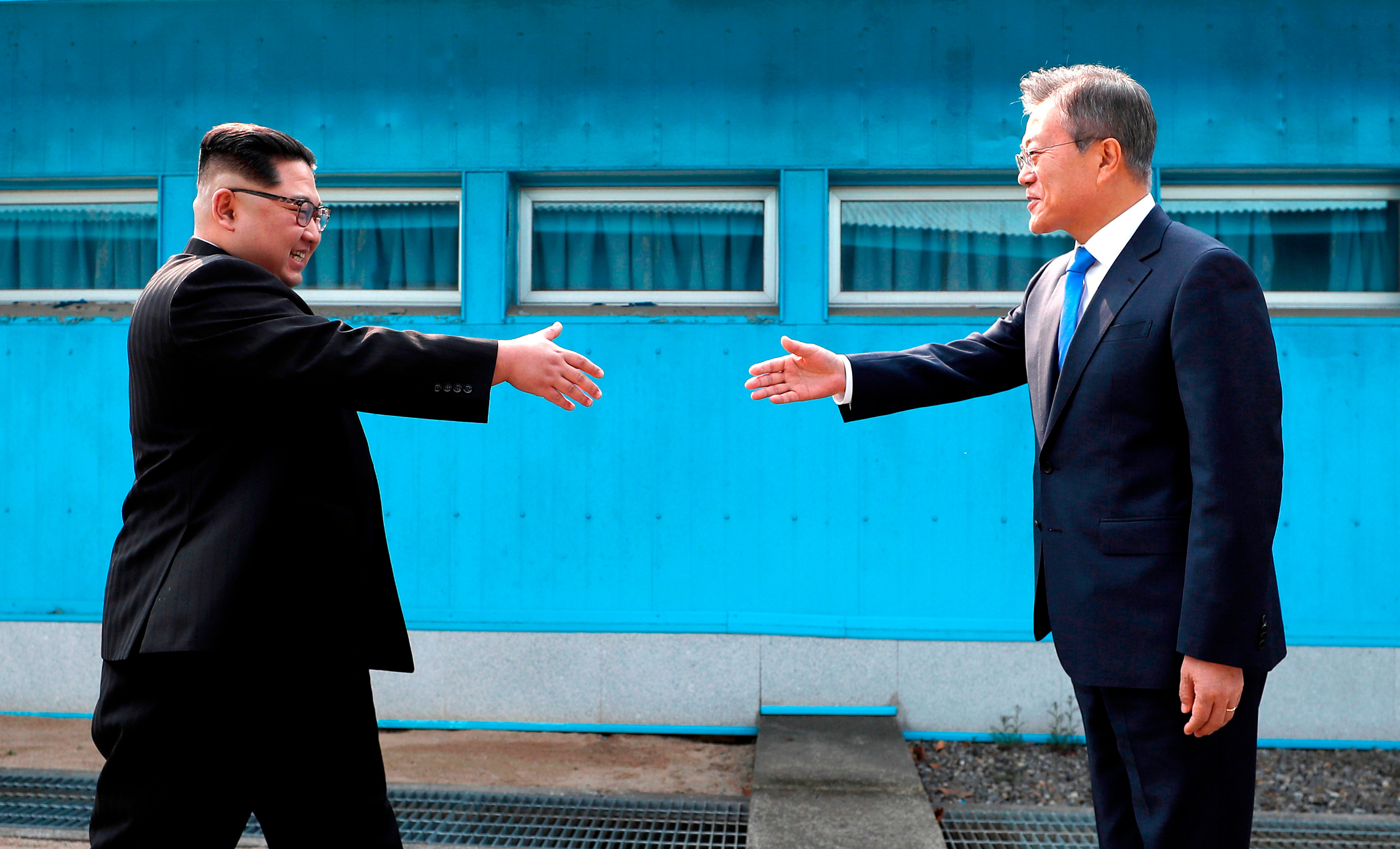

Let's not get ahead of ourselves.
No sooner did the rhetoric surrounding the Korean conflict get dialed down from raging hot to tolerably warm did a previously unthinkable question arise in the media and even among some world leaders: If President Trump presides over the end of the Korean War and the peaceful denuclearization of the Korean Peninsula, would the Nobel Prize committee be able to overlook the man who threatened to rain down destruction on Pyongyang and grant him its Peace Prize?
Some Trump boosters have all but demanded it — even before Trump has met with North Korea's Kim Jong Un. Rep. Luke Messer (R-Ind.) has launched a campaign to push the Nobel panelists to recognize Trump's efforts. "We are seeing unprecedented progress toward peace," Messer said last week, "and it's a direct result of President Trump's strong leadership."
The Week
Escape your echo chamber. Get the facts behind the news, plus analysis from multiple perspectives.

Sign up for The Week's Free Newsletters
From our morning news briefing to a weekly Good News Newsletter, get the best of The Week delivered directly to your inbox.
From our morning news briefing to a weekly Good News Newsletter, get the best of The Week delivered directly to your inbox.
South Korean president Moon Jae-in, who got elected on a program of engagement with the North but quickly backed Trump's hardline approach to Kim, has been pushing this too. "President Trump should win the Nobel Peace Prize," Moon reportedly told his staff after meeting with Kim himself in a historic summit at the DMZ. Moon added an important caveat, however: "What we need is only peace."
After some of the more notable awards from the Nobel committee over the past generation, actually achieving peace might provide a nice change of pace. Barack Obama won a Nobel without having yet made a decision on war or peace. Palestine's Yasser Arafat won one simply for agreeing to meet with Israeli officials in Oslo, and paid back the compliment a few years later by launching a series of terrorist intifadas. The EU won in 2012 for its contributions to "peace and reconciliation," despite its core members (and the U.S.) having spent the previous year bombing Libya into a failed-state status, touching off a refugee crisis that threatens to undo the EU itself.
If we've learned anything from these examples, it's to wait for peace first before doling out the prize. And peace in Korea is still a longshot.
North Korea has played this game in the past, offering agreements as a means to entice nations into talks only to pull a switch at the last minute and demand concessions as the price of those talks. More often than not, the U.S. and its allies have offered food and fuel resupplies, only to discover that the Kim regime had no intention of matching concessions with compliance on U.N. resolutions and previous agreements. Both Trump and Vice President Mike Pence have specifically declared that no concessions will be given for talks alone, and that any aid will only be transmitted in exchange for concrete steps toward denuclearization. However, that doesn't mean Kim Jong Un won't give that strategy another try, using optimistic world opinion as a lever.
A free daily email with the biggest news stories of the day – and the best features from TheWeek.com
Even if Kim has decided to end the war and open diplomatic and economic contacts with the U.S. and others in the region, the context of the talks and necessary concessions is still not clear. Moon and Trump both say that Kim has agreed to discuss denuclearization of the Korean Peninsula, but it's far from clear that both sides define that in the same manner. Is it just the removal of all nuclear weapons from North and South Korea? Or does it mean, as has been suggested in past talks, that it requires the U.S. to completely withdraw its nuclear arms from the region? Moon says that Kim will not make the presence of American troops in South Korea an issue for the talks, but it seems very doubtful that the Kim regime would abide them for long after a formal reconciliation.
Also, what exactly would peace look like? The state of war between the two nations has existed for 68 years, outstripping living memory for nearly everyone on the peninsula and outside of it. How long does the DMZ remain in place? What limits will each country accept on armed forces on the border, and for how long? Even the question of trade and travel is fraught with the weight of the totalitarian system in the North, when many of their subjects would risk their lives to escape.
That brings us to another question prompted by North Korea's aim at reintegration as well as reconciliation. Will Kim demand reintegration as a condition of peace — reintegration on Pyongyang's terms? Could his regime survive reintegration on any other terms? Recall what happened nearly 30 years ago when another wall dividing a nation fell. The East German government didn't survive long afterward, passing peacefully from the scene after the fall of the Berlin Wall. With a much starker contrast in living conditions across the 38th Parallel, a sudden loosening of the border could turn into a deluge of refugees that could destabilize a highly paranoid regime in Pyongyang, and its collapse might not be anywhere near as peaceful as East Germany's.
It's a lot easier to see the many ways this process could fail than the few in which this effort could succeed. That doesn't mean it's not worth pursuing. But peace is a long way off even if we can establish good will on all sides to pursue it. Much will depend on Trump's ability to make a deal with which all sides can live, but even more on just how much the Kim regime will demand and will require to protect themselves in a very uncertain future.
We should all hope for peace in Korea. But we certainly shouldn't bank on it.
Edward Morrissey has been writing about politics since 2003 in his blog, Captain's Quarters, and now writes for HotAir.com. His columns have appeared in the Washington Post, the New York Post, The New York Sun, the Washington Times, and other newspapers. Morrissey has a daily Internet talk show on politics and culture at Hot Air. Since 2004, Morrissey has had a weekend talk radio show in the Minneapolis/St. Paul area and often fills in as a guest on Salem Radio Network's nationally-syndicated shows. He lives in the Twin Cities area of Minnesota with his wife, son and daughter-in-law, and his two granddaughters. Morrissey's new book, GOING RED, will be published by Crown Forum on April 5, 2016.
-
 Sanae Takaichi: Japan’s Iron Lady set to be the country’s first woman prime minister
Sanae Takaichi: Japan’s Iron Lady set to be the country’s first woman prime ministerIn the Spotlight Takaichi is a member of Japan’s conservative, nationalist Liberal Democratic Party
-
 Russia is ‘helping China’ prepare for an invasion of Taiwan
Russia is ‘helping China’ prepare for an invasion of TaiwanIn the Spotlight Russia is reportedly allowing China access to military training
-
 Interpol arrests hundreds in Africa-wide sextortion crackdown
Interpol arrests hundreds in Africa-wide sextortion crackdownIN THE SPOTLIGHT A series of stings disrupts major cybercrime operations as law enforcement estimates millions in losses from schemes designed to prey on lonely users
-
 China is silently expanding its influence in American cities
China is silently expanding its influence in American citiesUnder the Radar New York City and San Francisco, among others, have reportedly been targeted
-
 How China uses 'dark fleets' to circumvent trade sanctions
How China uses 'dark fleets' to circumvent trade sanctionsThe Explainer The fleets are used to smuggle goods like oil and fish
-
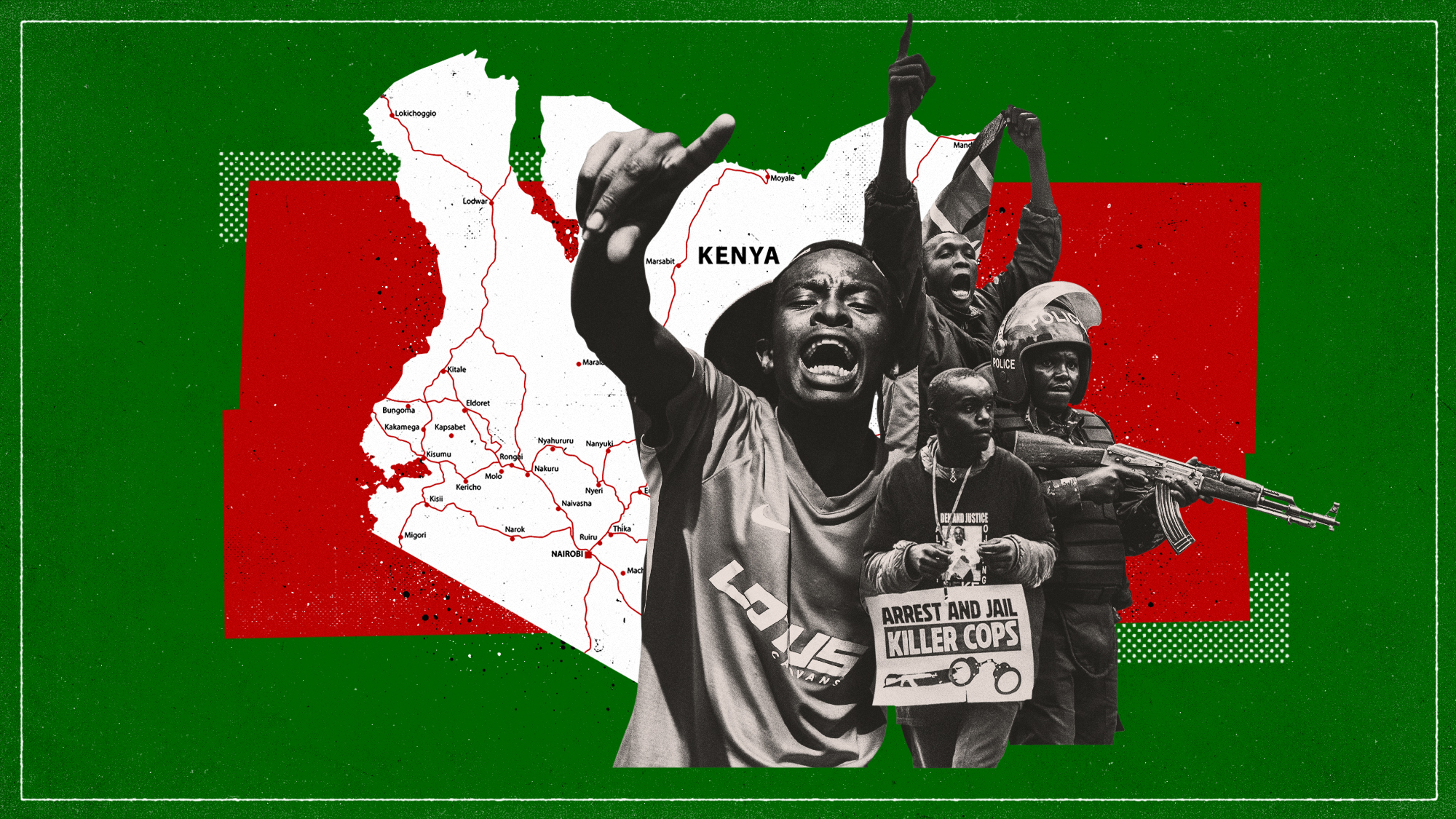 One year after mass protests, why are Kenyans taking to the streets again?
One year after mass protests, why are Kenyans taking to the streets again?today's big question More than 60 protesters died during demonstrations in 2024
-
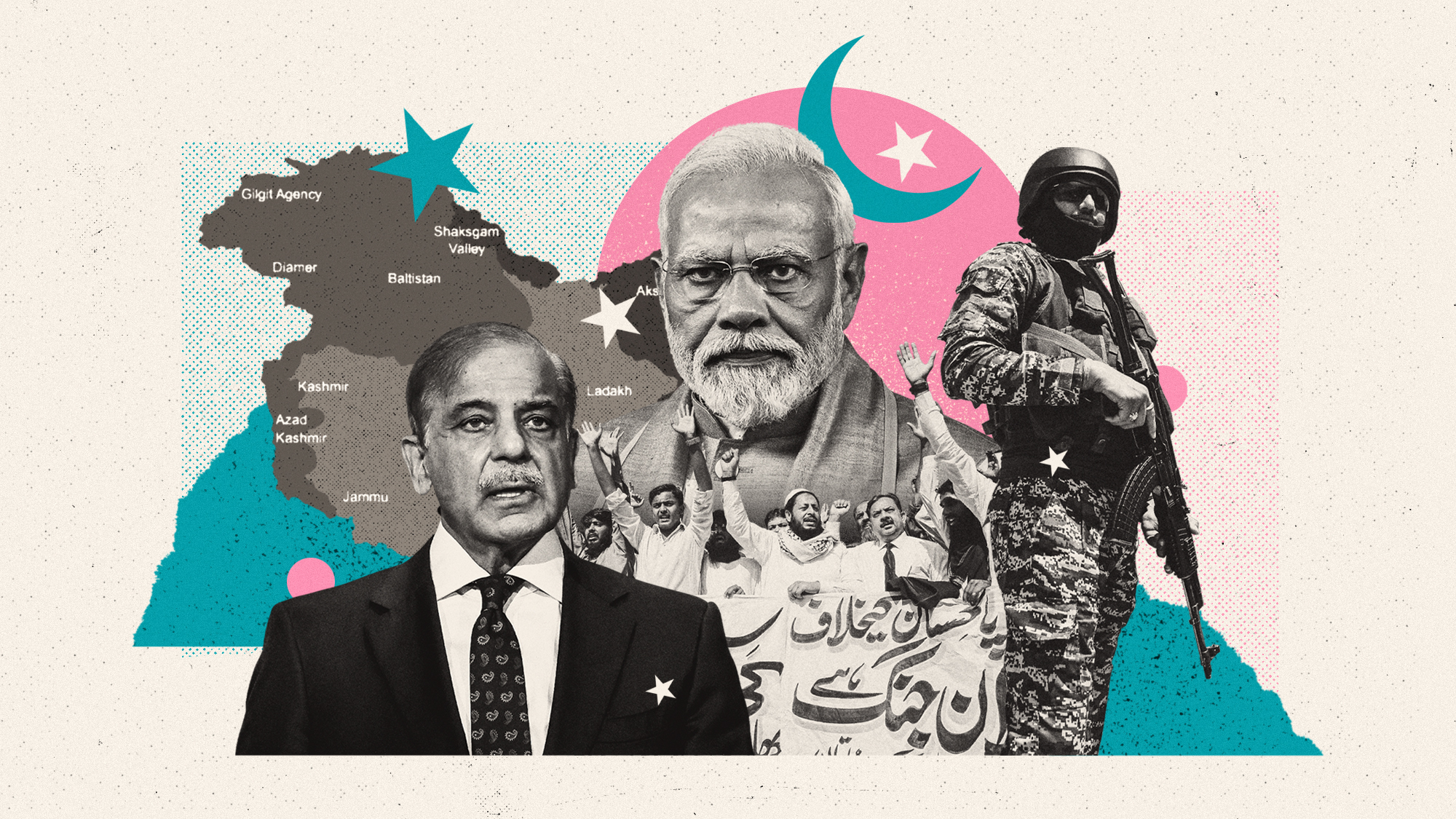 What happens if tensions between India and Pakistan boil over?
What happens if tensions between India and Pakistan boil over?TODAY'S BIG QUESTION As the two nuclear-armed neighbors rattle their sabers in the wake of a terrorist attack on the contested Kashmir region, experts worry that the worst might be yet to come
-
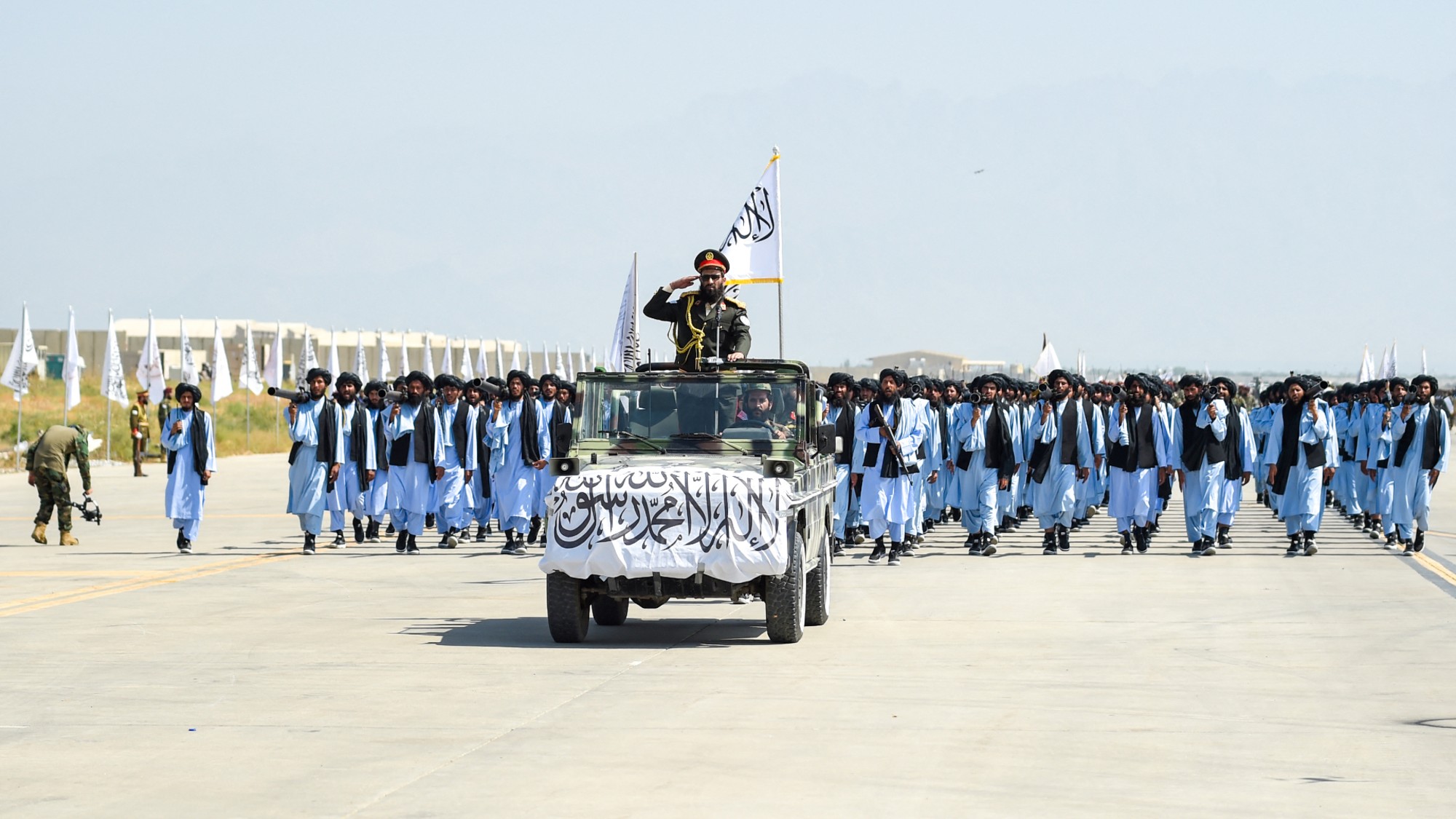 Why Russia removed the Taliban's terrorist designation
Why Russia removed the Taliban's terrorist designationThe Explainer Russia had designated the Taliban as a terrorist group over 20 years ago

